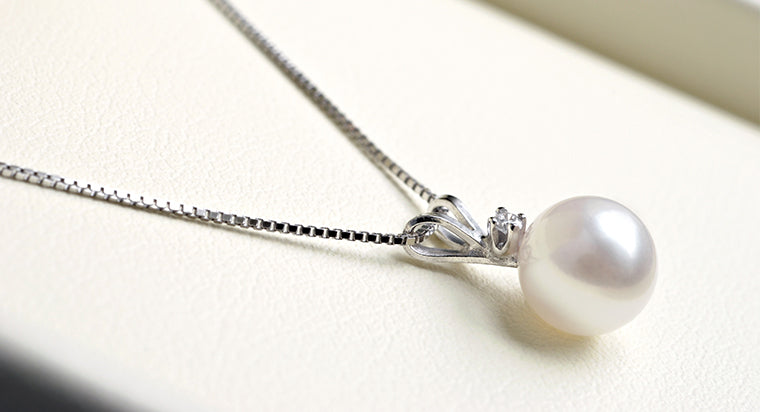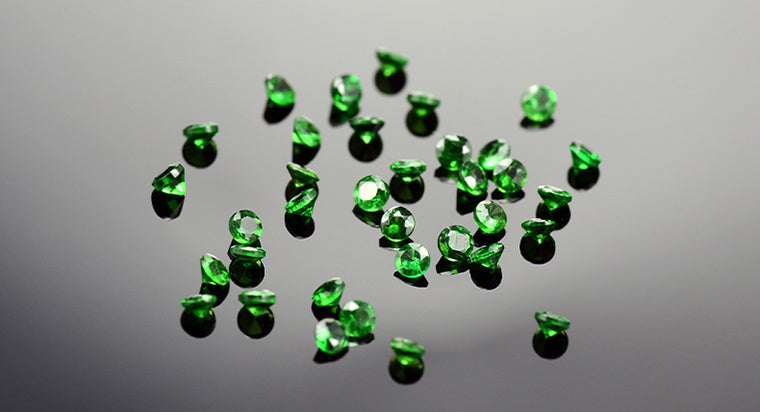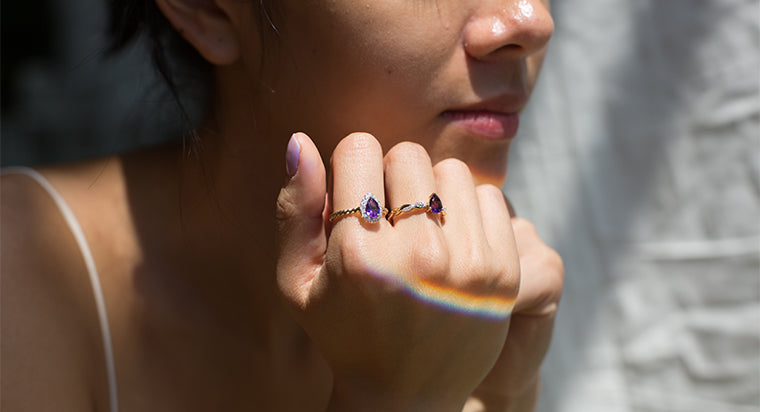All About the December Birthstone

If you or someone special in your life has a December birthday, you may already know a great deal about Tanzanite. However, if you are looking for information regarding this lovely December birthstone, you have come to the right place. If you were born in December, you probably realize that there are three gemstones that are often used as this month’s birthstone. Here, we will be taking a deep dive into the stone primarily considered December’s birthstone, Tanzanite.
Rarer than the much-loved diamond, this stunning blue gemstone was found in, and named for, the country Tanzania where it was discovered in 1967. This rare beauty is only found in a small geographic area where it forms in very specific conditions. Originally considered a less expensive alternative to sapphire, tanzanite has developed a following of its own. In fact, tanzanite is the second most popular colored gemstone. It is second only to sapphire.
According to legend, tanzanite gemstones were created when Mt. Kilimanjaro was set alight by lightning. The resulting “magic fire” was said to transform the dull brown crystals found there into bright violet/blue gemstones. Local Maasi tribespeople who discovered these striking gemstones believe the brilliant blue stones would bring them an enriched life. Many also associate tanzanite with spiritual enlightenment and harmony or balance.
TABLE OF CONTENTS
Characteristics of Tanzanite
This beautiful blue stone is the only gemstone that is trichroic. This means that you will find three color axis, or angles (blue, brown, and purple), in a tanzanite stone. So, depending upon which angle you are viewing the tanzanite from, it will appear to be a different color.
Color
Tanzanite gemstones will range in color from a pale lavender with light blue overtones to a deep velvety cornflower blue with striking violet to purple tones. The more deeply saturated blue tanzanite gemstones are extremely rare and therefore quite valuable. Due to its nature, your tanzanite gemstone will always have a trace of violet in it. You will also find that the size of tanzanite will impact the depth of color it holds. Larger stones will generally have a deeper saturation than small tanzanite gemstones.
Since the deep blue tanzanite gemstones have a greater value than paler tanzanite, you may find gemstones that have been treated. Most Tanzanite is heat-treated to bring out the blue color of the stone. This type of treatment is common and the results are stable.
However, you may sometimes find a lesser value tanzanite gemstone that has been coated with cobalt to enhance its color. If your tanzanite has been treated in this way, be aware that the coating may be vulnerable to scratching.
Hardness
A tanzanite gemstone will rate between 6.5 and 7 on Moh’s scale of hardness. This means that the tanzanite gemstone is softer than some gemstones and requires some care. Although tanzanite gemstones are a popular choice for all types of jewelry and can be found set in all of the traditional metals, you may want to take special care in choosing a setting if you are looking for a ring intended for everyday use.
Large tanzanite stones may become chipped if struck directly. Therefore you will want to be mindful of activities when you are wearing your tanzanite jewelry. You may also experience breakage if your tanzanite is subjected to rapid changes in temperature.
Cleaning your Tanzanite Jewelry
Due to the nature of tanzanite, you will never want to use a steam or ultrasonic cleaner. the best way to clean your tanzanite jewelry is to use warm soapy water. A soft toothbrush may be used to clean around your setting. Always dry with a soft cloth.
Other Care Considerations
You will want to protect your tanzanite jewelry from exposure to harsh chemicals. You will want to avoid wearing tanzanite jewelry when swimming or engaging in sports. If you are looking for a piece of tanzanite jewelry to wear daily, you may want to consider investing in pear, oval, or heart-shaped gemstone. The absence of corners will help reduce the likelihood of chipping and prolong the beauty of your tanzanite jewelry.
FAQs
Is tanzanite a rare gem?
Yes. Tanzanite gemstones are much rarer than diamonds. The rarity of this stunning gemstone comes from the fact that Tanzanites have only been found in a limited geographic area and require very specific conditions within which to grow.
Which metal best suits the tanzanite?
The lovely blue tanzanite gemstone looks best coupled with a cool-colored metal. As this stone is one of the softer gemstones, you will want to set it into a harder metal setting if you are looking to ensure its durability. Due to the softer nature of tanzanite gemstones, you will often find them set into platinum. This metal's strength will help to protect your gemstones.
Which color of tanzanite is the most valuable?
The most saturated blue, purple-blue, and violet-blue tanzanite gemstones are the most valuable. As paler blue and violet-colored tanzanite gemstones are earlier to find, they are also less valuable.
Can you wear tanzanites every day?
Although tanzanite gemstones are softer than some other gemstones, you can certainly wear tanzanite daily so long as you treat your tanzanite jewelry with some care. Since large tanzanite stones may be chipped, if struck directly, it is wise to take off tanzanite jewelry when engaging in some activities. By careful selection of your tanzanite jewelry setting, you can significantly offset the risk of damage to your gemstone. For example, setting your tanzanite gemstone in a bezel setting will reduce the risk of chipping a large stone.









